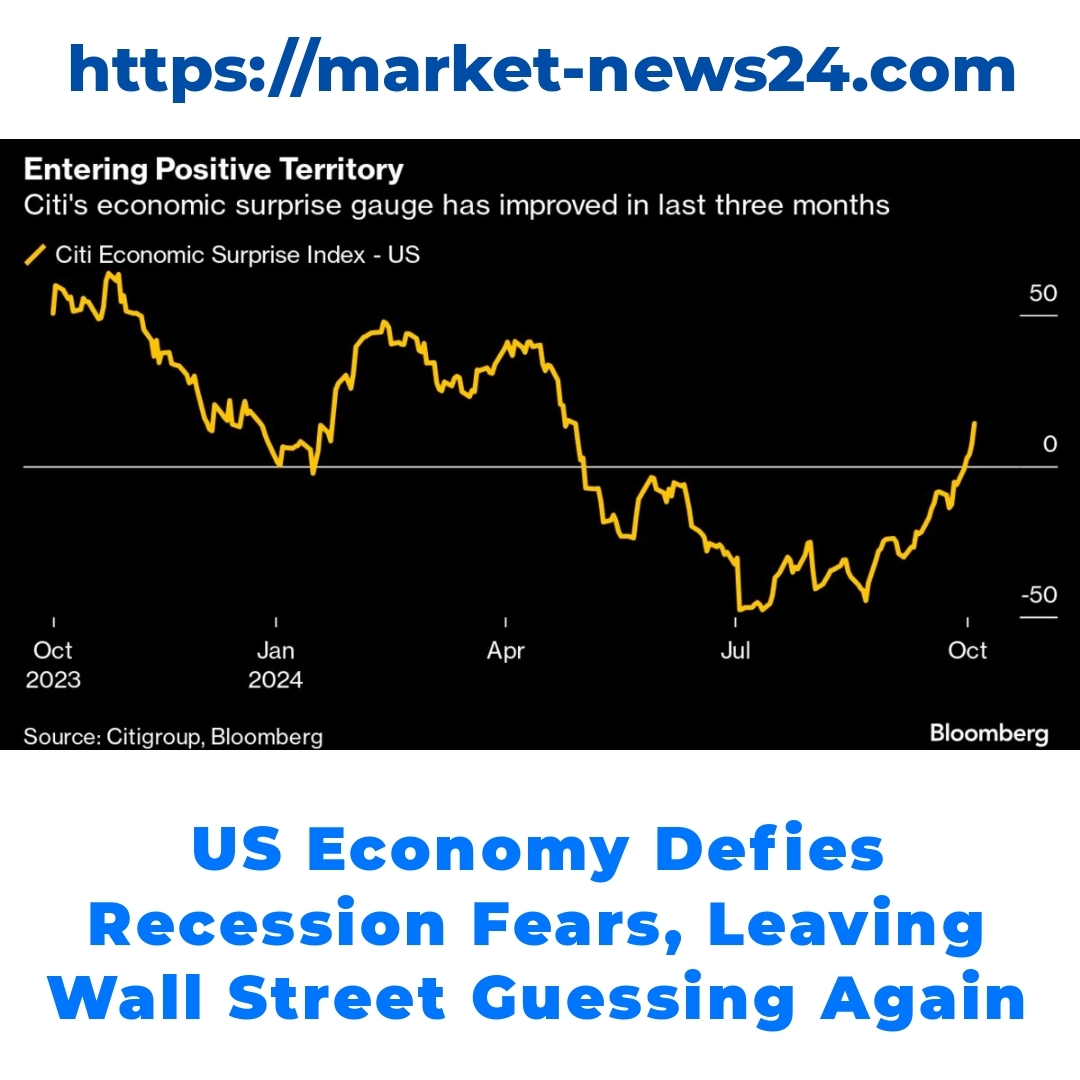The US economy showcases a remarkable resilience, highlighted by strong growth indicators. Yet, amidst this stability, Wall Street continues to echo concerns over a potential recession. Investor sentiment fluctuates as fears mount, reflecting a complex landscape where economic strength meets prevailing market anxieties about the future.


Understanding the Current State of the US Economy
The US economy shows impressive resilience, especially when you look at key indicators. For one, employment rates are strong, consumer spending is healthy, and inflation is gradually stabilizing. These elements paint a picture of an economy that’s not just surviving but thriving.
– Unemployment rates remain low, which means more people are working and contributing to the economy.
– Consumer confidence is on the rise, pushing spending in various sectors.
– Manufacturing and services are expanding, reinforcing the strength of the US economy.
This overall economic vitality contradicts the growing narrative surrounding a potential Wall Street recession.
Wall Street Recession Fears
Despite the robustness of the US economy, Wall Street is buzzing with recession fears. Investors have become increasingly worried due to several factors that feed into the broader recession alarm narrative. Many analysts point to signs such as:
– Fluctuating interest rates that could make borrowing more expensive.
– Ongoing supply chain issues that threaten economic stability.
– Geopolitical tensions that could affect market confidence.
As a result, investor sentiment fluctuates, often leaning towards caution. Understanding the reasons behind these fears can help investors navigate the current market landscape.
Impacts of US Economy on Wall Street
So how exactly does the resilience of the US economy impact Wall Street? Financial market stability amid economic growth is crucial. When the economy looks strong, markets often reflect that confidence:
– Stock prices tend to rise when earnings reports are favorable.
– Investment opportunities flourish as businesses expand.
– Generally, economic resilience fosters a more stable market environment, reducing drastic price swings.
However, the ongoing Wall Street recession narrative complicates this. It shapes investor sentiment in ways that can either bolster or hinder market performance.
Reasons for Wall Street Recession Fears
Even with strong economic indicators, some experts continue to sound the recession alarm. But why? Here are some contributing factors:
– Persistent inflation rates that exceed Federal Reserve targets.
– Trade tensions with other countries, which could disrupt growth.
– The potential impact of rising interest rates on consumer spending.
These elements create a paradox where an otherwise resilient economy still faces genuine challenges. Such concerns need to be taken seriously as they contribute to a lingering Wall Street recession mindset.
How the Resilient Economy Affects Investors
With a robust US economy in play, it’s essential to examine how this influences investing strategies. A strong economy typically leads to:
– More confidence in the stock market, encouraging increased investment.
– Discovery of new market opportunities as businesses innovate and expand.
– A shift in risk assessments, with many investors feeling bolder about longer-term strategies.
However, it’s not all smooth sailing. There are risks associated with chasing after returns when economic indicators start shifting. Investors need to stay vigilant to adapt to these changing scenarios.
Analysis of the US Economic Impact on Financial Markets
A comprehensive analysis reveals that economic trends have a direct correlation with market expectations. Historical context plays a significant role here:
– Economic cycles often dictate when investors should be cautious or aggressive.
– Previous downturns serve as reminders of the volatility that can emerge unexpectedly.
– Learning from these cycles helps in making informed investment decisions today.
Understanding the correlation between these factors is crucial for anyone looking to navigate the complexities of Wall Street effectively.
Conclusion
In summary, the resilience of the US economy stands in stark contrast to the persistent Wall Street recession alarm. While the economic indicators point toward growth, the concerns voiced by investors cannot be overlooked. It’s a complex interplay where opportunities abound, yet risks remain omnipresent.
For investors, the current economic climate offers both challenges and potential rewards. Staying informed and adaptable is key to thriving in this ever-changing landscape. As the US economy continues to evolve, keeping an eye on these dynamics will be essential for future investments.
What are the current indicators of the US economy?
The US economy shows several strong indicators including:
- Low unemployment rates
- Healthy consumer spending
- Rising consumer confidence
- Expansion in manufacturing and services sectors
Why are there fears of a Wall Street recession?
Despite the strong economy, there are recession fears in Wall Street due to:
- Fluctuating interest rates
- Ongoing supply chain issues
- Geopolitical tensions affecting market confidence
How does the US economy impact Wall Street?
A resilient US economy generally leads to:
- Rising stock prices with favorable earnings
- More investment opportunities as businesses grow
- A stable market environment with reduced price swings
What are some risks associated with the current economic climate?
Key risks include:
- Persistent inflation surpassing Federal Reserve targets
- Trade tensions that could impact growth
- Rising interest rates affecting consumer spending
How should investors adapt to the current economy?
Investors should consider:
- Increased confidence in the stock market for more investment
- Exploring new market opportunities due to innovation
- Maintaining vigilance to adapt to changes in economic indicators
What historical lessons can help investors today?
Understanding past economic cycles can aid investors by:
- Indicating when to be cautious or aggressive
- Highlighting the potential for unexpected market volatility
- Informing better investment decisions based on historical context





